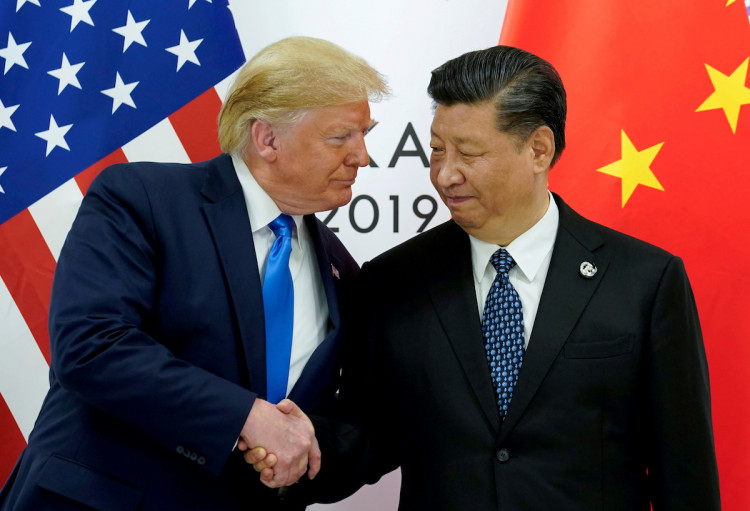China has issued a stark warning to President-elect Donald Trump, cautioning that renewed trade tensions with the U.S. would lead to economic losses on both sides. This comes as Trump, who recently won the presidency, has vowed to reintroduce sweeping tariffs on Chinese imports, a cornerstone of his "America First" policy aimed at protecting U.S. industries and promoting domestic growth. Trump's pledge to impose up to 60% tariffs on Chinese goods has prompted a swift response from Beijing, which argues that a trade war would be detrimental to both nations.
"There is no winner in a trade war, nor will the world benefit from it," Liu Pengyu, spokesperson for the Chinese Embassy in the U.S., told Newsweek. "Further increasing tariffs on Chinese products will only significantly drive up the cost of imported goods, inflict more loss on American companies and consumers, and will eventually backfire."
The renewed focus on trade comes after a tumultuous first term for Trump that saw a protracted economic conflict with China. The trade war, which began in 2018, saw both countries impose a series of escalating tariffs that disrupted global supply chains, increased costs for businesses and consumers, and strained diplomatic relations. Analysts warn that a new round of tariffs would only exacerbate existing economic challenges.
Wendy Cutler, vice president at the Asia Society Policy Institute, noted that China is better positioned to handle another trade war than it was during Trump's initial presidency. "Beijing has taken steps to reduce its reliance on U.S. imports, including pouring money into making its domestic industries more competitive and innovative," she told Newsweek. Despite this, the economic stakes remain high, with bilateral trade still valued at close to $600 billion annually.
Cutler also highlighted the potential consequences for the U.S. economy, including renewed inflation and disruptions to supply chains. "A new wave of Trump tariffs will rekindle inflation, cause supply chain reductions, and potentially slow U.S. economic growth," she said. Inu Manak, a trade policy fellow at the Council on Foreign Relations, echoed these concerns, emphasizing that tariffs would inflict broad economic pain. "A renewed trade war would certainly harm the U.S. economy," she said, pointing out that past retaliatory measures by China targeted U.S. agriculture, a critical industry.
The potential economic fallout has led to calls for a more targeted approach to addressing trade imbalances with China. Manak suggested that instead of blanket tariffs, the U.S. should work through the World Trade Organization to hold Beijing accountable for issues such as state subsidies and forced technology transfers. "There are legitimate concerns with China that should be addressed, but tariffs will not solve that," she said.
Chinese President Xi Jinping, in a phone call congratulating Trump on his election win, also weighed in on the growing tensions, emphasizing that "history tells us that both countries stand to gain from cooperation and lose from confrontation." Xi called for enhanced dialogue and a stable U.S.-China relationship based on mutual respect and cooperation.
The warnings from Beijing come as the political landscape in the U.S. shifts in Trump's favor, with Republicans securing control of both chambers of Congress. This consolidation of power could pave the way for the implementation of Trump's proposed tariffs with few obstacles. During his first term, Trump imposed duties of at least 10% on more than $300 billion worth of Chinese goods, a policy that was largely maintained by the Biden administration.
China has already taken preemptive steps to brace for a potential escalation. Reports suggest Beijing is preparing a range of retaliatory measures, including duties on U.S. agricultural imports and export controls on minerals critical to the U.S. defense industry. "China has an arsenal of responses ready," noted a senior Chinese trade official.





